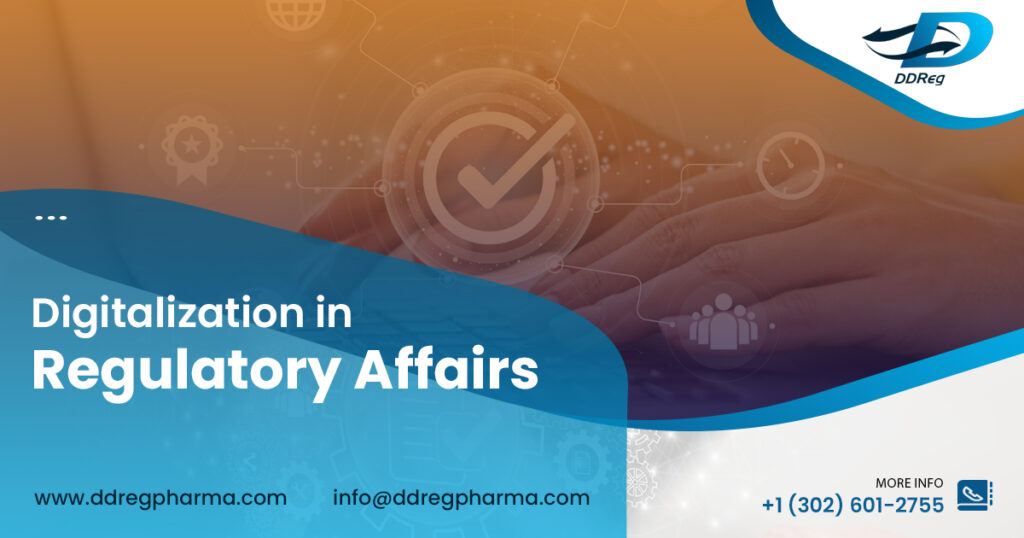Technology is rapidly driving the growth of the Pharmaceutical and Life Sciences industries. With digital solutions being made more easily available, drug development & pharmacovigilance are transforming to become more efficient, compliant, and patient safety focused. However, regulatory affairs is still somewhat manual where processes and tasks are repetitive, siloed, and resource-heavy.
Though Life Sciences organizations are moving towards digitalization of regulatory affairs and implementing systems, these are not entirely utilized to their capability. This can affect key processes such as change controls, submissions, and product releases. Hence, organizations that can successfully carry out and maintain digital transformation in regulatory affairs will not only stay ahead of market competition but also obtain the full business value of their digital investments.
‘Intelligent’ Regulatory Affairs
Intelligent automation contributes towards improving work efficiencies and increased business value as they support regulatory affairs in multiple ways. These include applying machine learning (ML), natural language processing (NLP), and automation for regulatory submission processes including converting information from PDF and Word documents to metadata, automatically drafting documents from existing templates and sources, and automating document linking to ID management that is currently manual [1]. Furthermore, smart-technology platforms can screen for regulatory updates and automate notifications and alerts to support regulatory intelligence allowing organizations to meet authority requirements in order to support rapid market approvals.
NLP processes in automated systems help screen through structured and unstructured, vast regulatory data sources to obtain information and enter it into relevant regulatory information management systems (RIMS) thereby bridging the gap between siloed systems. Additionally, NLP helps with the classification of such documents & regulatory sources, as well as adverse events (AEs). A paper by DIA highlighted some of the key problems in regulatory affairs that could be tackled by artificial intelligence and automation [2]. For example, AI & NLP-powered analytics could detect trends and specific references from regulatory authorities interactions with previous submissions to gain regulatory insight; NLP algorithms could identify content and automatically suggest structured format when translating/converting documents.
Technological and digital revolution
The point of digitalization is to enhance work efficiencies, reduce compliance risks, and ultimately support people in the way they work rather than entirely eradicating manual input. Indeed, this would result in greater return on investment and greater business value. Gradually implementing digital solutions and smart-technology software in regulatory affairs will lead to error-free and faster submissions and product launches in global markets.
Innovative solutions and systems that support regulatory intelligence and decision-making have the potential to revolutionize the regulatory and pharmaceutical industries. To support this, life sciences companies are providing smart-technology platforms and solutions that would deliver business value. The integration of intelligent working procedures and the right application of evolving technology will increase efficiencies in regulatory filings while maintaining the high quality and compliance standards. Ultimately, this could translate into time and resource savings for marketing authorizations and post-marketing requirements that will revolutionize the regulatory environment.
Smart-tech solutions with DDReg
DDReg understands the challenges that the ever-evolving regulatory landscape brings for pharmaceutical organizations, particularly related to regulatory submissions and has carefully curated a revolution RIMS tool to address these challenges. It is a one-stop solution for regulatory, project & document management, reg intelligence, and global registration tracking and monitoring requirements that support modern pharmaceutical organizations in obtaining rapid market access for their products while mitigating compliance related risks.
References and Further Reading
[1] Misra, R. Regulatory Affairs: unlocking value with digital transformation. Whitepaper
[2] Balasubramanian V, Brewer-Yizar V, Clark K, Coney B, Finkle J, Ghahraman V, Mahoney-Jewels S, Palmer D, Parent K, Shafer P, Smithson C. DIA Regulatory Affairs Community Regulatory Information Management (RIM) Working Group Regulatory Information Management Whitepaper V2. 0.

